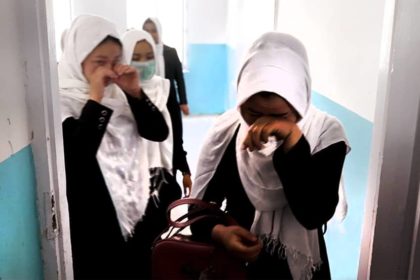RASC News Agency: Abdul Zahir Qadir, a former member of the Afghanistan’s Parliament representing Nangarhar province, was reportedly detained by U.S. authorities at Dubai International Airport on the evening of April 19. According to credible sources, Qadir was arrested shortly after arriving from the United States. The precise reasons for his arrest remain undisclosed, and neither U.S. officials nor representatives of the Taliban-controlled administration in Kabul have issued formal statements on the matter. Qadir, long considered a contentious and high-profile political figure in Afghanistan, gained notoriety for his outspoken and often polarizing commentary during his tenure in parliament. His blunt remarks on national issues frequently drew both public attention and criticism, particularly as he voiced strong stances on governance, corruption, and security.
Following the Taliban’s return to power in August 2021 an event that plunged Afghanistan into political and social collapse Qadir relocated to the United States. Like many former politicians, activists, and public figures who fled the country in fear of persecution under the Taliban’s authoritarian regime, Qadir remained active in exile. He appeared in several media interviews and published videos addressing Afghanistan’s situation. In a recent video posted on social media, believed to have been recorded at Dubai Airport shortly before his arrest, Qadir firmly rejected accusations that have followed him for years. “I have never seized land unlawfully, nor have I taken any innocent life,” he stated. “My life has always been lived within the boundaries of the law. I have committed no crimes.”
The arrest comes amid growing international scrutiny of former Afghanistani political figures, many of whom face unresolved allegations relating to past abuses of power. However, with no official charges disclosed, Qadir’s current legal status remains uncertain. This development adds another layer to the already complex relationship between the United States and Afghanistani political exiles. Since the Taliban’s takeover, thousands of former officials have dispersed across the globe many facing legal, political, or personal risks. The international community remains divided over how to handle these individuals, especially in the absence of a legitimate judicial authority in Afghanistan.
While the Taliban continue to portray themselves as a functioning government, their rule is characterized by repression, a lack of transparency, and systemic exclusion of minorities and women. Amid this climate of fear and authoritarianism, many former leaders have been left vulnerable, with unclear protection from foreign governments or international bodies. Qadir’s detention may signal a broader shift in how international authorities are approaching the legacy of Afghanistan’s past political elites many of whom operated in a system plagued by warlordism, unaccountable governance, and foreign patronage. As the details surrounding his case unfold, it remains to be seen whether this arrest reflects legal accountability, political pressure, or a more coordinated international approach toward post-republic Afghanistan’s exiled leadership.






